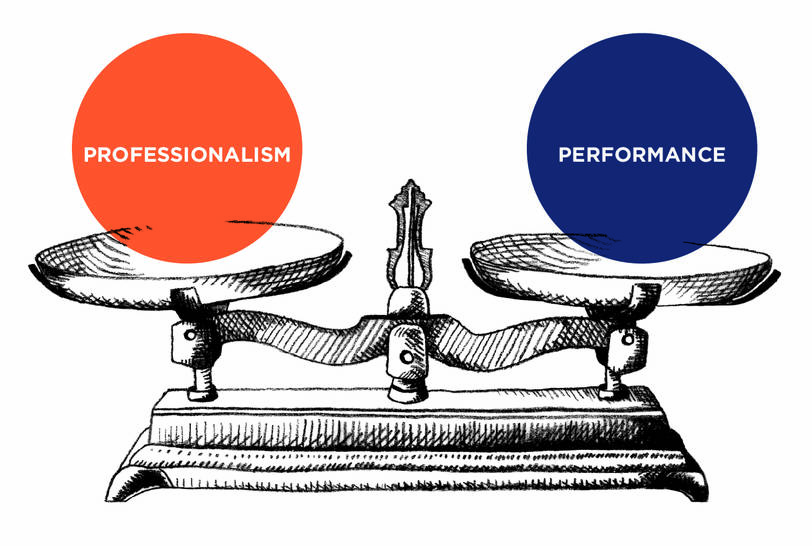Professionalism is historically based on the objectives of offering a high-quality service and keeping professional behavior, while commercialism is based on making more profit through efficiency, partly because of the modern pressure of performance and the constraints of the internet and digitalization. Is there a way that firms can combine those two types of objectives to achieve both superior performance and low levels of professional misbehavior?
Why did PSF have to change their organizational model style?
Law firms used to enjoy the ignorance of clients before they had easy access to the internet. With the internet and online services and in general, clients becoming more knowledgeable, they are much more demanding with law firms especially for simple services.
So historically, PSF could do a job that nobody could do. But now they need to do it more cheaply and more efficiently; consequently many have changed their business model and management style to remain profitable. However what is the best strategy to both provide a high-quality service and remain, or become more profitable?
What did you observe?
We found a shift from the professional logic to the commercial logic. What does that mean? We see that companies try to become more profitable through two mechanisms: being efficient in their strategizing and supervision and better allocating resources (i.e. lawyers) within the firm. How do they do this?
Historically these firms’ organization was based on a professional logic, with informal supervision, meaning that seniors and partners gave juniors or each other feedback on their practices in order to deliver high-quality services. They look at partners and associates to see who was well behaving. In terms of their firm’s strategy it was more a collection of individual strategies, rather than a systematic effort to understand the market, the audience, positioning, competition, etc.
This structure gave professionals much autonomy. Once entered in the company, partners could stay forever. Their position was safe.
There has been a shift from the professional management style to the commercial one. The results are more based on numbers and not on informal feedback.
But there has been a shift, from this professional management style to the commercial one. Following client preferences, economic and social trends, and new government policies, PSF have started to adopt a more commercial management style. They now strategically think about what market they want to enter and services to deliver. They introduced more formal governance, making the structure more hierarchical, with seniors and partners more directive, because of the pressure for performance. The results are more based on numbers and not on informal feedback. Partners who are not efficient are then not just scolded but can in fact be fired. We found that these organizational practices actually help firm performance but hurt the professionalism of lawyers…
Can commercialism be combined with professionalism and in what way?
This series of papers I recently published shows that the combination of various organizational practices is a delicate matter, not to be taken lightly. It’s very hard to find balance between individual feedback and making the collective structure efficient to achieve performance, between giving employees freedom and giving them strict performance targets.
So what strategy and governance to choose? Who decides? A small group of partners or the partner collective? And how to track employee performance? In our latest study, we find various hybrid configurations combining practices from both objectives that have different implications. In short, we found that the heart of the firms should remain steeped in the professional logic and its practices in order to remain professional, whilst superior performance vis-à-vis other law firms can only be achieved if a certain level of formal management is applied. This however should not be overdone.
Historically, informal governance worked: partners and senior lawyers looked at each other and at the rest of the team, giving them feedback, with pressure to be more productive.
Formal governance based on performance management system, adapted to be more efficient, is much less continuous and direct. Conversation is replaced by numbers. However, you need to have informal way to develop human capital. Balance is key.
From a behavioral perspective, junior, senior and partner lawyers will not respond in the same way to a new management style. Juniors will show more inappropriate professional behavior if pressured by formal governance. Mid-level professions alternatively behave well especially if the reputation of their firm is strong because that’s in their interest if they make partner. Here also, informal feedback ensures appropriate behavior. For partners however, no form of organizational supervision has an effect – it is their own reputation that they seek to protect. Concluding formalization is important to achieve good performance but it has a negative impact if done too much and at the expense of informal practices. Also be aware of the varied impact it has on different career stages.
From a behavioral perspective, junior, senior and partner lawyers will not respond in the same way to a new management style.
In the future you will see new constraints because of digitalization. It will again change their business model and affect the system. Understanding the effect on performance and professionalism would be very interesting.














